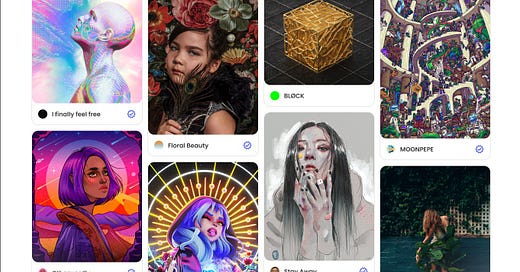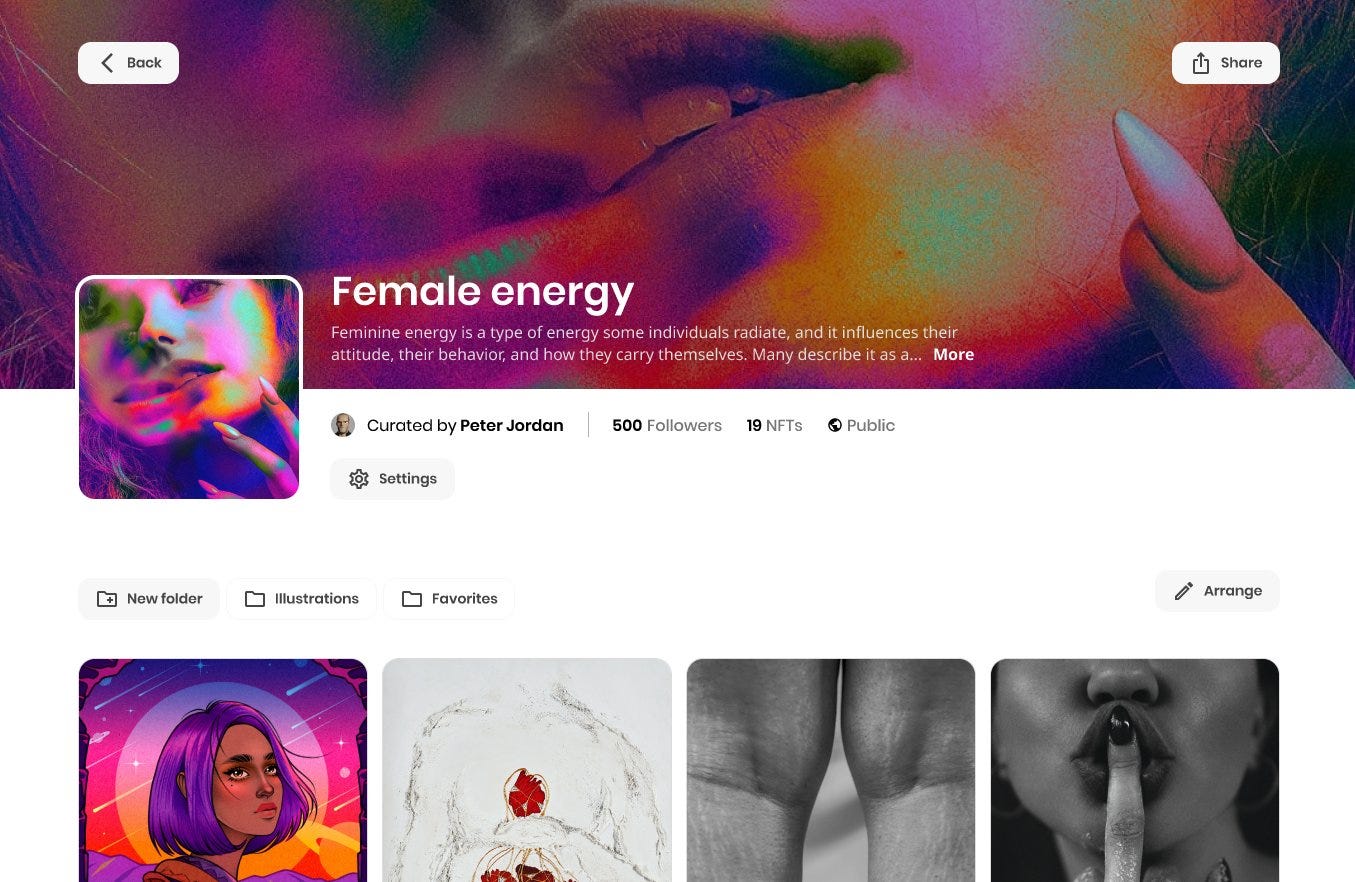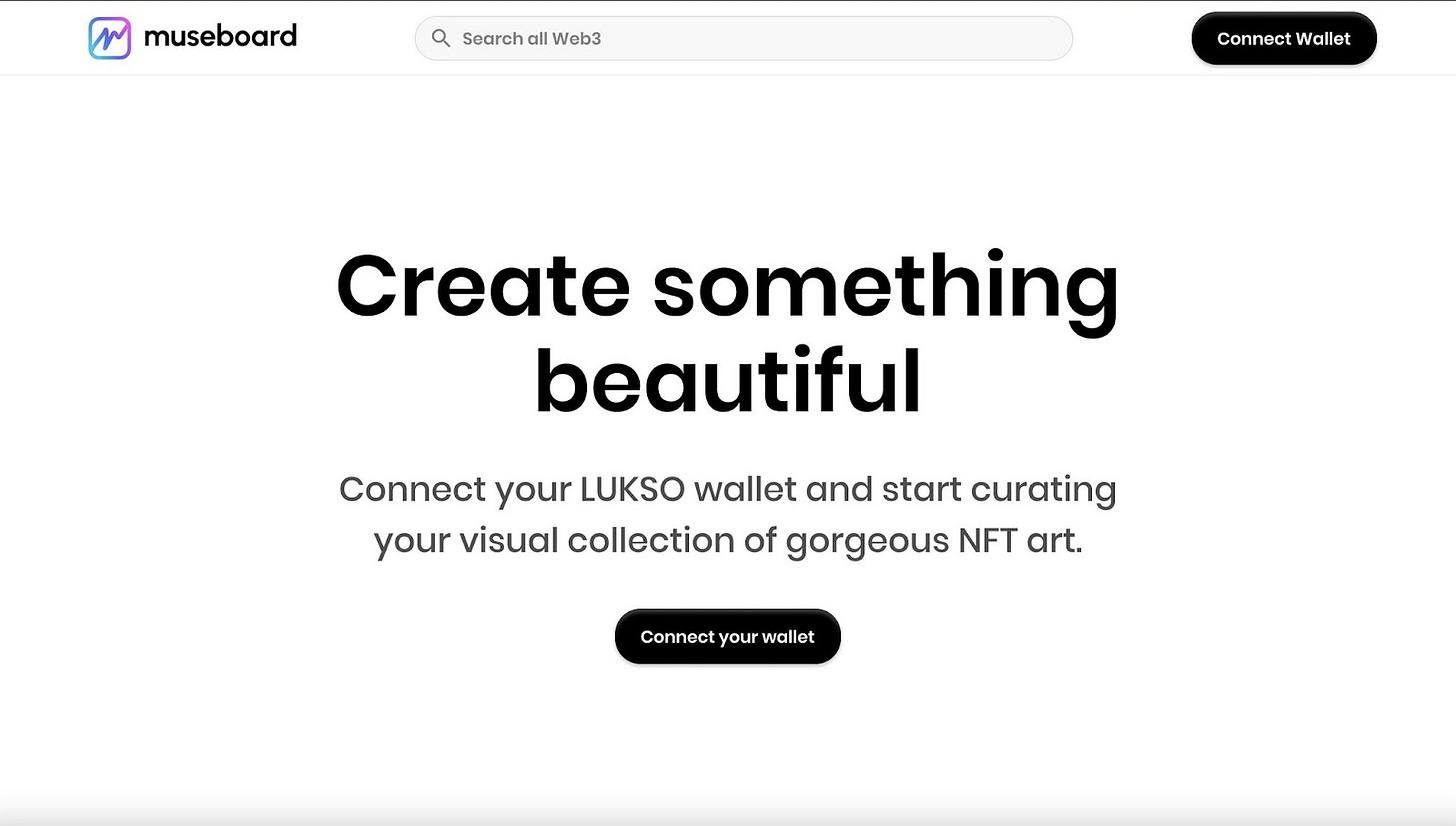If you took the functionality of Pinterest, injected the freedom of LUKSO standards, and served it to the Web3 creative community, what would you get?
Piping hot museboard!
Submitted in the Universal Profile Open category of the LUKSO Build UP! Hackathon, museboard allows users to create mood boards of the NFTs that interest them, regardless of ownership. They call it a "LUKSO Pink Pilled Web3 Pinterest” that focuses on the creators. Their boards allow users to curate art collections that are personally inspiring but without the need to own the NFT, which just by itself is pretty dope! But there's more…
Museboard also subtly introduces something that will be a staple for Web3 adoption: the value of self-sovereign data.
Where we are
First, some background on our current data economy:
In Web2, centralized platforms own our user accounts, gather our personal data, and use targeted advertising to extract the value of our preferences, interests, and behaviors. This business model is the hidden cost that pays for the large infrastructures of companies like Google, Facebook, eBay, and Pinterest.
Web3 has introduced a decentralized blockchain infrastructure, allowing actual custody of digital assets, but we have yet to adopt the decentralized user profiles needed to store our personal data.
Platforms (like OpenSea) allow us to trade the assets we own, but the profile system used to identify us on those platforms is contained within their ecosystem and under their control. They are not truly decentralized profiles that we can take with us when we travel from one platform to another.
In short, Web2 controls our valuable personal data, and Web3 has not yet provided a proper way for us to store it.
Where we are going
With their suite of smart contract standards and Universal Profiles, LUKSO enables truly decentralized Web3 user accounts. These accounts not only allow museboard to store the personal data needed for their boards, they enable them to become an NFT marketplace.


NFT Purchases on museboard can be made from any board, regardless of the creator. You can even purchase an entire board filled with various NFTs from various artists! This feature is where the new Web3 data economy comes into play:
1% of the profit from an NFT sale goes to the owner of the board from where it was purchased. You, as the true owner of a decentralized identity on a fully permissionless platform, can extract value from your own personal data. In this case, the art that you like and share on museboard.
Museboard also highlights another LUKSO innovation: gasless transaction. An additional 1% of NFTs sales goes to the museboard relayer service, allowing museboard to pay for gas fees and making it 100% free for users to connect their profile and create their boards.
A final 1% goes to the museboard platform itself, which is very fair. OpenSea, for example, takes 2.5% for its platform, which is centralized, less functional, gas intensive, and nowhere near as beautiful.
Museboard accomplishes a lot of things we have been waiting for in Web3. They have developed a fully decentralized platform, a user experience that resembles the beauty and functionality of Web2, and a marketplace that distributes profit directly to those who have earned it.
Check out their Hackathon video submission below, and visit their GitHub page for more details.






